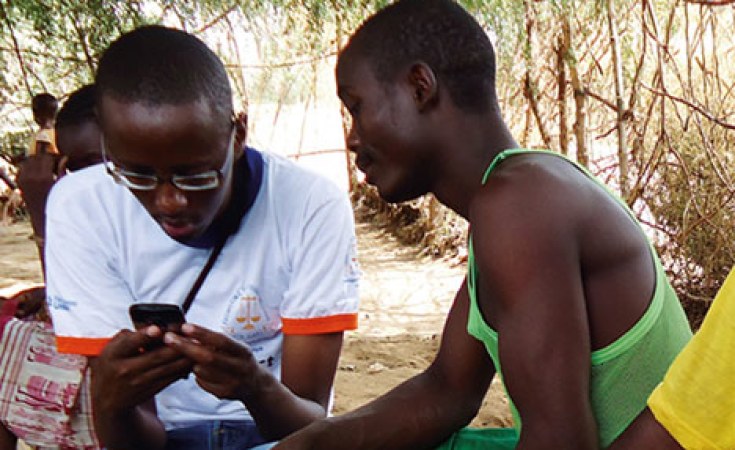Technology is changing our world in ways we could have never imagined. With global smartphone subscriptions predicted to reach 5.6 billion by 2019, increased broadband access and a 24-hour stream of information, the possibilities are endless. The challenge is to use these advances to serve the most disconnected families in the world.
I was pleased to participate this week on a panel about data and innovation in humanitarian action at the Techonomy Conference in Tucson, Arizona alongside innovative leaders in the humanitarian field. John Fitzgerald from Dell Federal, Sarah Telford from the United Nation’s Office of the Coordination of Humanitarian Affairs (OCHA), and David Megginson from Open Data, all participated. The panel was moderated by Richard Tyson of OCHA. They are all doing incredible work to use technology as part of humanitarian interventions.
The panel aimed to address one question: “How can real-time data and technology help global institutions respond to natural and man-made disasters?” During the panel discussion I highlighted areas where I believe the humanitarian world can do better at sharing and using data. A big part of that is collaborating with other organizations and avoiding the trap of “reinventing the wheel”.
When my brother and I started Refugees United in 2008, our goal was to reconnect families separated by war, conflict and disaster. Seeing firsthand how difficult this was with the existing systems (paper records scattered throughout the world), we decided to create the world’s first mobile and online tool to help refugee families find their loved ones.
Thanks to the support we have received from Ericsson – our main technology partner – the global database now contains more than 230,000 searchable profiles. We collect data, such as first name, surname and place last seen.
During my presentation, I emphasized the need to break down data silos across organizations. Globally, hundreds of organizations work with tracing families – each with their own documents, systems, databases and profiles of separated families.
Our goal is to speed up family reconnections by empowering refugees to take the search for missing loved ones into their own hands – from any device. We strive to build a bridge between low-tech and high-tech solutions. Although the refunite platform is advanced, it is crucial that it is easy for refugees to access the platform and register. As an example, families living in Goma refugee camp in DRC can call a toll free number and register via the phone. The same applies for families in Dadaab and Kakuma refugee camp in Kenya.
Despite the challenging and innovative nature of our work, the formula is pretty simple: the more profiles in the global database, the more likely families are to find their missing loved ones.
Refugees United continues to advocate safe data-sharing across reliable organizations. Having one global database, which is accessible from multiple touch points, is a much more effective way of connecting families. Global data-sharing is vital as refugee families often cross borders and lose track of each other during their journey. Here, the global aid sector needs to take more risks in terms of sharing information. In this context, not taking a risk is too much of a risk.
By collaborating and sharing data on the ground, we have been able to speed up family reconnections. We have made our data available to trustworthy organizations, such as UNHCR and Kenya Red Cross, in an attempt to reconnect even more families in refugee camps and regions in Africa and the Middle East. OCHA’s mandate is to bring together humanitarian organizations to ensure an aligned response to emergencies. We will support their efforts in anyway we can. Coordination and data sharing have given us reach far beyond what we could have achieved on our own.
While technology will continue to advance, it is our job in the humanitarian space to stay focused on how to use the data we have; whether it is shared data, mapping or mobile phones, to best serve our target groups. We will inevitably make mistakes. That’s okay, too. As long as we fail fast, and remember to share this kind of data as well – that in itself is part of innovation.
Read more about the work of Refugees United and the partnership between Refugees United and Ericsson.
Written by David Mikkelsen
David Mikkelsen is an expert on social innovation and an international speaker who bridges the gap between the nonprofit world and the corporate world. In his capacity as co-founder and co-CEO of Refugees United, David Mikkelsen and his brother Christopher Mikkelsen have built the first-ever family-tracing platform for refugees, capitalizing on the ever-growing mobile phone usage across Africa and working closely with partners, such as Kenya Red Cross, UN Refugee Agency, Ericsson and others. With little more than access to a low-cost mobile phone, and in selected countries even without access to the Internet, refugees can search, connect and communicate with missing family. This innovative approach has been featured in TIME, Forbes, BBC, CNN, the Guardian, Newsweek and more.


